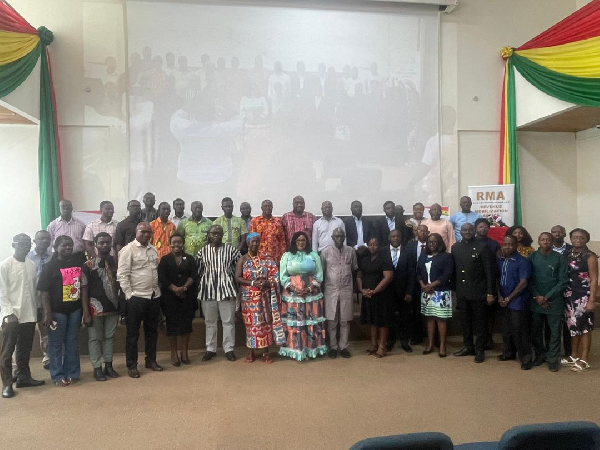- Gender Minister warns Ghana’s tax framework may deepen inequality for women in informal work.
- Women in the informal sector earn slightly above tax-free limits but struggle financially while managing unpaid care work.
- Government reforms include VAT exemptions, disability tax relief, and zero-rating sanitary products.
- Minimal tax contributions empower citizens to hold leaders accountable, per GRA.
- National Tax Forum encourages policies connecting tax revenues to social welfare programs.
Ghana’s taxation framework is under scrutiny as policymakers and civil society leaders call for reforms that consider the realities faced by women in the informal sector. At the 2024 National Tax Forum in Accra on September 10, 2025, Dr. Agnes Naa Momo Lartey, Minister of Gender, Children and Social Protection, warned that current tax policies could worsen economic disparities rather than alleviate them.
She pointed out that women make up the majority of informal workers—around seven out of ten—and many earn just above the personal income tax-free threshold. Despite this, their incomes are insufficient to meet household needs, and they continue to shoulder unpaid caregiving responsibilities, from raising children to supporting elderly family members and assisting persons with disabilities. Dr. Lartey stressed that when tax systems ignore these challenges, they inadvertently punish those striving to survive rather than contributing to national growth.
From the Ministry of Finance, Technical Advisor Daniel Nuer highlighted efforts to make taxes more equitable. Recent reforms include VAT exemptions on staple foods and medicines, tax relief for people with disabilities, and the zero-rating of locally produced sanitary towels in 2023. Revenues from these taxes, he added, continue to fund social programs such as the National Health Insurance Scheme, the Ghana School Feeding Programme, and the expansion of GETFund to support free tertiary education for persons with disabilities.
Meanwhile, Elsie Appau-Klu, Technical Advisor at the Ghana Revenue Authority, defended the importance of maintaining tax contributions from informal workers. She argued that even minimal payments create leverage for citizens to hold elected officials accountable for public services, reinforcing the social contract between the state and its people.
Organized by Revenue Mobilization Africa with partners including the Ghana Integrity Initiative, the Trade Union Congress, and the Ghana Revenue Authority, the National Tax Forum focused on “Tax Policies for Social Protection.” The gathering brought together government officials, civil society representatives, and tax experts to discuss how taxation can directly support social equity and economic fairness.


